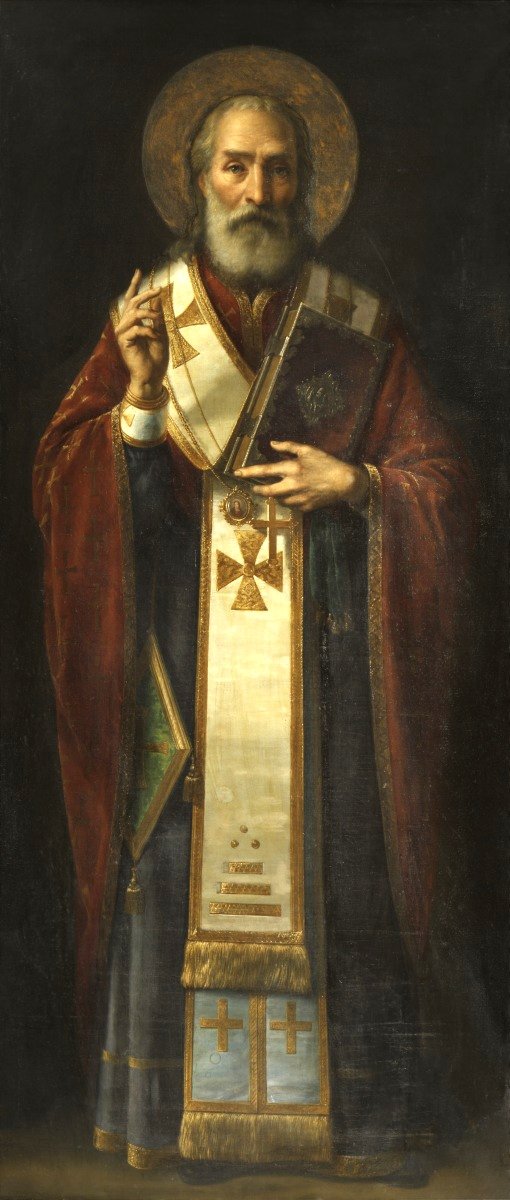In the Beginning Was the Word
/What is the longest word in the English language? It is not antidisestablishmentarianism! It is, as the Oxford mathematician John C. Lennox likes to say, the 3.5 billion-lettered word in DNA (deoxyribonucleic acid) in every human cell! A word in the human cell? Scientists are wrestling with the idea “that information and intelligence are fundamental to the existence of the universe and life.…”[1] But from where has this information come? How did words get inscribed in DNA? Philosopher of science Stephen Myer calls it the “DNA enigma.”[2] Where did the four-character digital code stored in DNA come from?
And you may be wondering: What does this have to do with Advent? Think of the intriguing connection with the Christmas text of John 1: 1, 3: “In the beginning was the Word, and the Word was with God, and the Word was God… All things came into being through Him, and apart from Him nothing came into being that has come into being.” Consider this in tandem with the text of Hebrews 11:3, “The world was created by the word of God.”
The discovery of information in the cell in our lifetime is fascinating. In 1953, Crick and Watson demonstrated the structure of DNA. DNA consists of parallel strings, a double helix. These parallel strings are connected like a twisting ladder with rungs that are chemical words. These chemical words function like digital characters in a computer software section. Bill Gates says, “DNA is like a computer program.” These chemical words are arranged to convey particular information. I can arrange letters: tttooooeernb; or I can rearrange them: “To be or not to be.” So, depending on how they are arranged, these DNA strings give instructions for making the parts to build tiny machines in each cell.
Within the cell, extremely sophisticated exchanges of information occur. DNA strings instruct these cell machines to haul cargo; turn on and off cellular switches, and wait for another machine to arrive. At the end of the day, the arrangement of the chemical words of the DNA strands and their instructions contribute to the difference between Samson, Henry VIII, and Marilyn Monroe, The “DNA enigma”! From where do the different words, the genetic instructions, come?
Is it chance? Science journalist Clifford Longley writes that saying it’s random chance is like thinking Shakespeare’s works could be written by a billion monkeys sitting at a billion keyboards typing for a billion years. The monkey argument was put to the test in 2003 in Plymouth, England. Some museum curators put typewriters in the cage of some macaque monkeys. The best they could get out of them, before they “did their business” on the typewriters, was to repeat the ‘S’ key. There simply is not enough time in the history of the cosmos for chance to formulate complex cellular messages.
How about random mutation and “natural selection”? There is not enough time in the history of the universe for random mutation and natural selection to locate extremely rare genetic sequences of chemical words capable of building cellular machines. Stephen Meyer compares it to a bike thief trying to pick a bike lock with 10 dials. The thief would have to search through 10 billion possible combinations to unlock it. Devoting a lifetime to unlocking the bike lock would prove fruitless. There has not been enough time since the origin of the universe for random mutation and natural selection to construct even a single gene.
From where do genetic instructions come? Was it quantum tunneling? Can the possible existence of an infinite number of universes explain it? No matter which of materialism’s and naturalism’s arguments, they come up short for the same reason. They cannot adequately explain how new genetic, biological information necessary to produce new biological life-forms arose from nothing.
There is a better argument. This argument assumes letters arranged in intelligent sequences of meaning imply a sentient mind. Ink and paper do not produce the Oxford English Dictionary. Egyptian hieroglyphics, Shakespeare’s Romeo and Juliet, or Microsoft Office; they come from conscious, mental activity. In our human experience, information is always a product of an intelligent mind. Moreover, not only does mind produce the information, but it also guides and orders information’s selection to an ultimate, purposeful, and moral end. How is this achieved? Where is the power to accomplish such an end?
Might the scientific discoveries of cellular words lead us back to Genesis and John? God in his creative act speaks his word issuing information. “Then God said, ‘Let there be light’.” When Francis Collins stood next to the President and announced the decoding of the human genome, he said, “This is the language of God.” The Word who speaks has informed each living cell. Furthermore, he has the power to direct the information to a purposeful and moral end: “And there was light.” As Hebrews 11:3 says, “The world was created by the word of God.” Before mass-energy was, “in the beginning was the Word, and the Word was with God, and the Word was God … all things came into being through Him, and apart from Him nothing came into being that has come into being” (John 1:14).
This is absolutely stunning! We celebrate this Advent the Word which not only dwells in the constitution of every human cell, but who himself became “flesh” and seeks to dwell in every human heart!
[1] John C. Lennox, God’s Undertaker: Has Science Buried God? (Oxford: Lion Hudson, plc, 2007), 167.
[2] Stephen C. Meyer’s recent book is the major resource for this article; see Stephen Meyer, The Return of the God Hypothesis: Three Scientific Discoveries that Reveal the Mind Behind the Universe (Harper One).





















